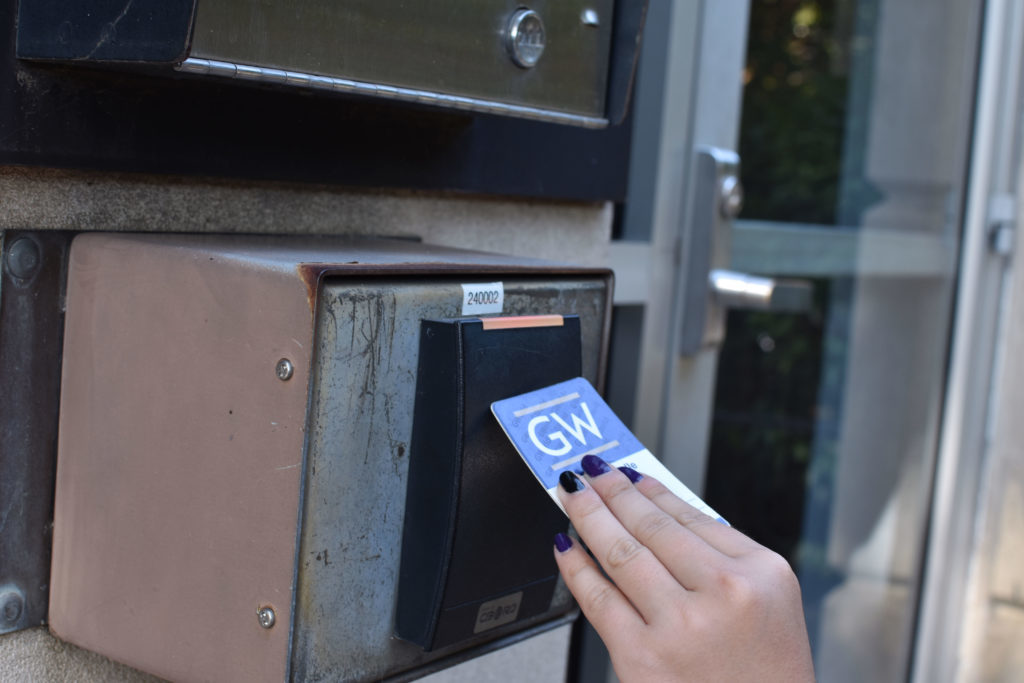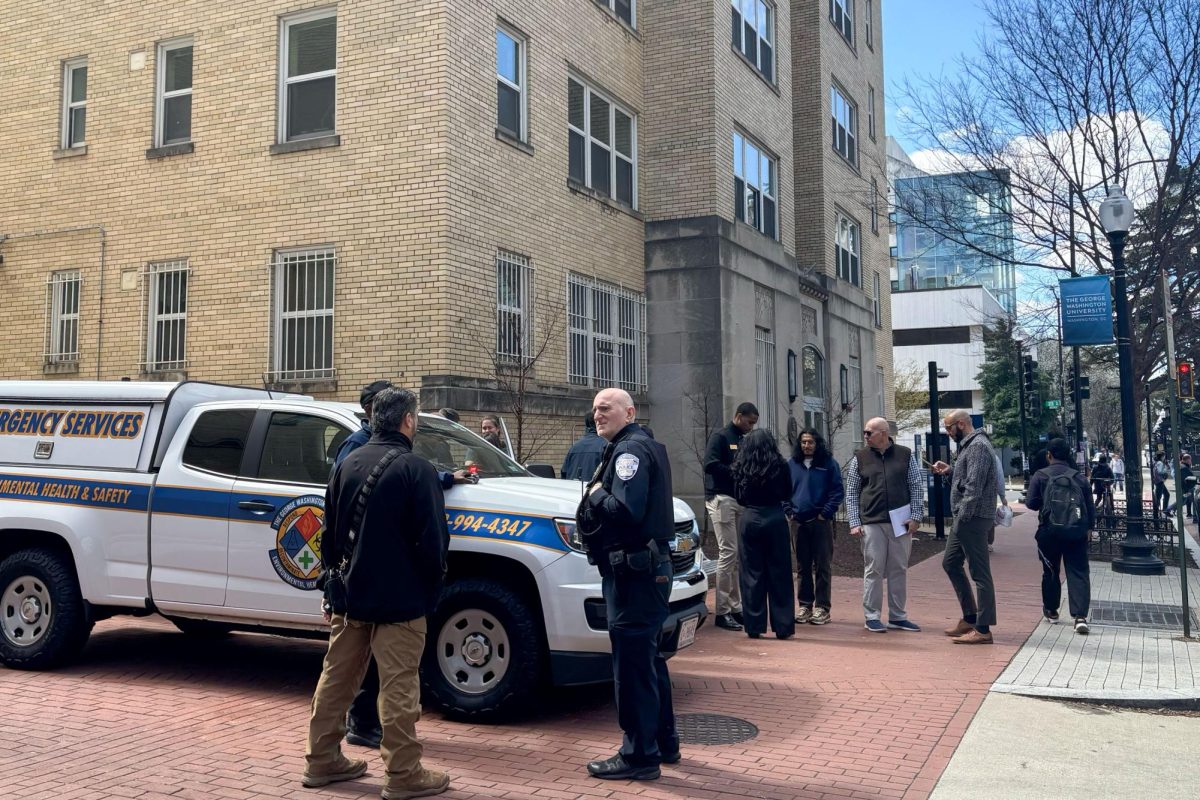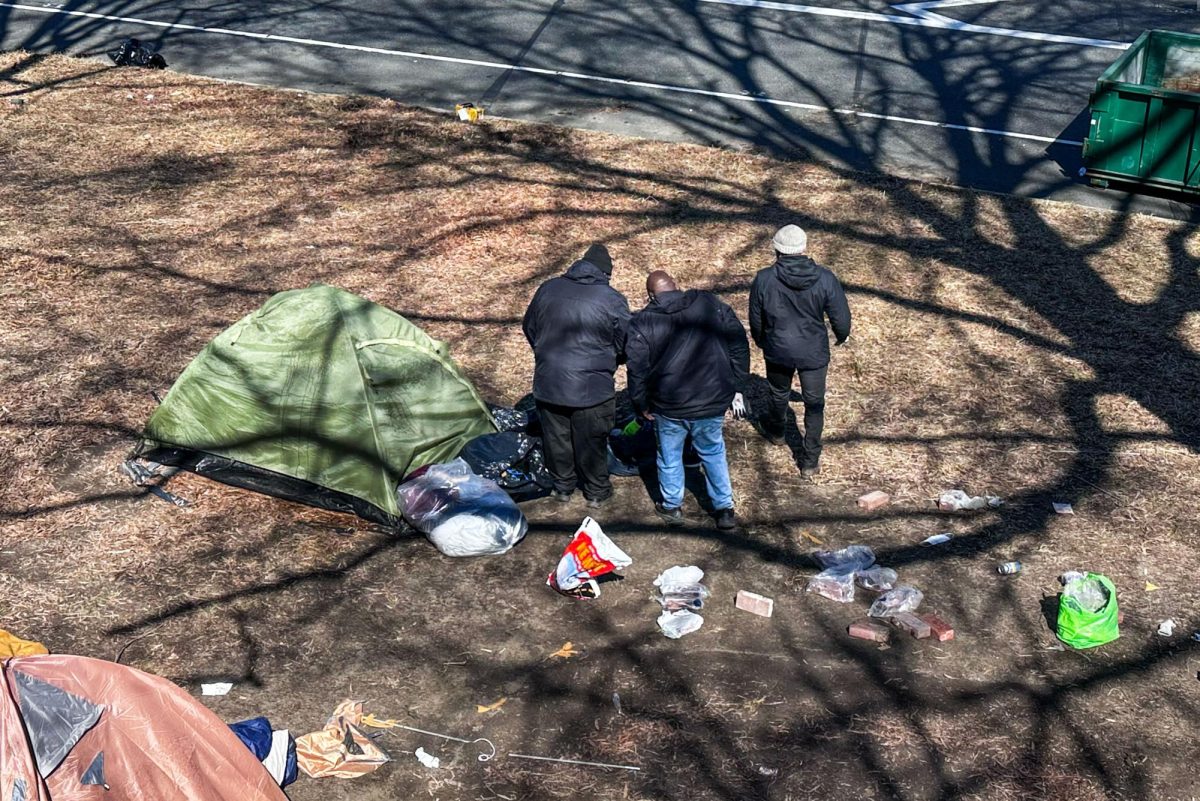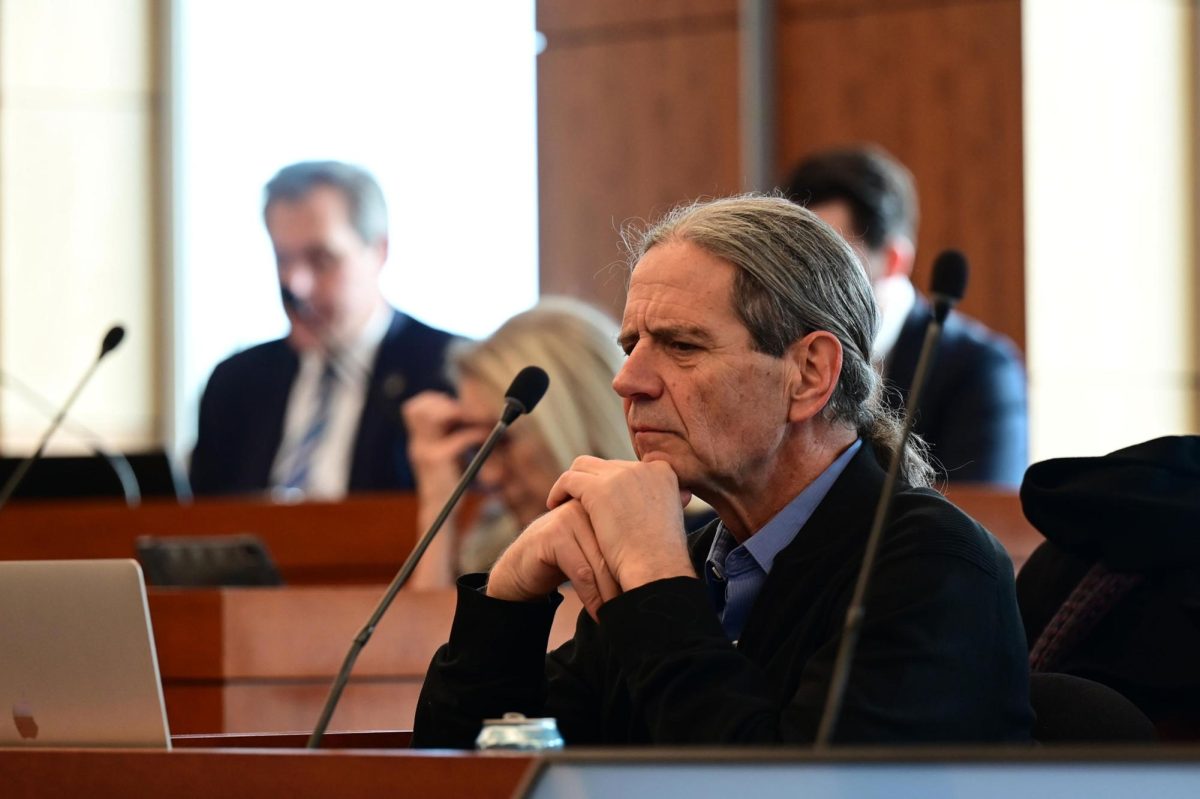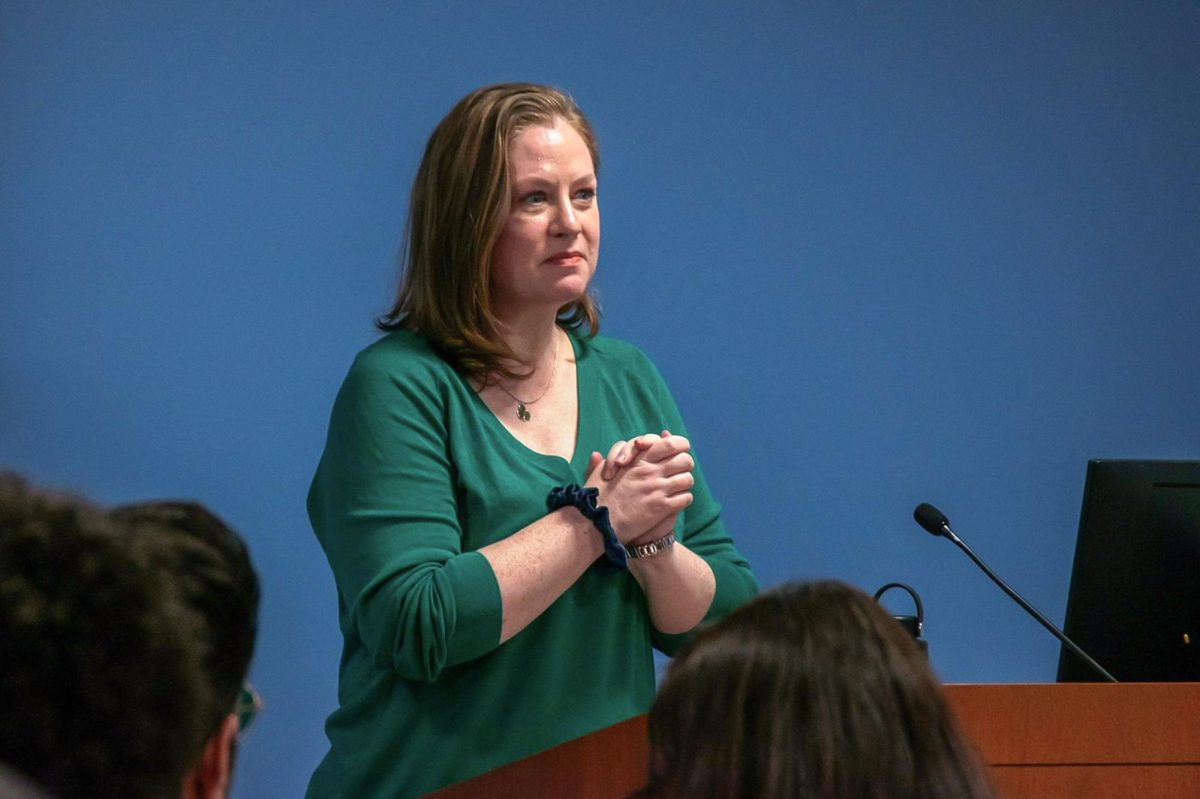Officials are loosening GW’s residence hall guest restrictions, allowing each student to host two GW-affiliated guests in their room.
The updated policy will allow students, staff and faculty who are in compliance with GW’s COVID-19 testing and vaccine requirements and do not live on campus to enter residence halls, Campus Living and Residential Education staff said in an email Wednesday. Those guests can stay overnight, but individuals who are not permitted to access campus still cannot visit residence halls at any time.
“We will make an exception at the end of the semester during move-out similar to what we implement for move-in,” the email states.
The University has prohibited off-campus students from visiting residence halls so far during the semester, only permitting on-campus students from visiting each other between 7 a.m. to 11 p.m. Assistant Dean of Students Stewart Robinette said last month that officials could penalize students for violating the policy, but students questioned the extent to which the University could enforce the policy.
The change marks the sixth revision to the guest policy since the beginning of the pandemic. Officials had initially banned guests in the spring, loosening restrictions in May when officials allowed on-campus students to visit other residence halls and again in July when officials allowed some off-campus students access to rooms. Restrictions were tightened again by the start of the fall semester.
Coronavirus cases among the GW community spiked early last month with an almost 3 percent positivity rate on one day while cases rose nationwide with the surge of the Delta variant, but the positivity rate stayed well below the D.C. average. GW’s positivity rate has since remained below 1 percent.
“Please be aware that this fall 2021 guest policy adjustment is contingent upon continued successful adherence by the majority of residents to the public health measures that have limited the rates of COVID-19 transmission on campus,” the email states. “All guest restrictions will be reinstated if public health conditions warrant or compliance with the revised guidelines is not met.”


